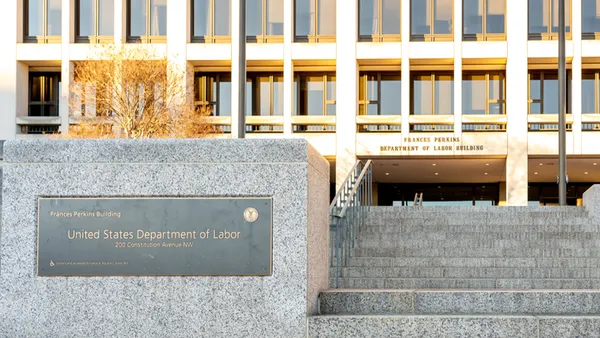Dive Brief:
- A North Carolina-based Courtyard by Marriott hotel retaliated against a former assistant general manager after she requested leave to obtain gender-affirming surgeries, the worker alleged in a lawsuit filed Wednesday (Fendel v. Shreeji Hotel Group, LLC).
- The worker requested three separate leaves of absence for “medically necessary, gender-affirming care done in multiple stages,” according to the lawsuit. Shortly after requesting and being approved for the third leave, the worker was told her position was being eliminated, along with all other assistant general manager positions, as part of a restructuring. Her role is the only one that was ultimately eliminated, however, she alleged.
- The worker alleged her firing was a form of disability and gender identity discrimination in violation of Title VII of the Civil Rights Act of 1964 and the Americans with Disabilities Act, as well as interference with her Family and Medical Leave Act rights.
Dive Insight:
The Family and Medical Leave Act entitles eligible employees to 12 weeks of job-protected, unpaid leave for specified family and medical reasons, including employees’ own serious health conditions.
The worker at the center of Fendel requested and was granted multi-week leaves that occurred over the course of the year: from June 6 through June 29, 2023; from Aug. 16 through Sept. 10, 2023; and from March 3 through mid-April, 2024. Altogether, the leaves added up to roughly 12 weeks.
After the first leave, which required the worker to not lift anything over 10 pounds during her recovery, she was asked to lift objects that exceeded the weight limit, according to her complaint. The hotel also requested she delay the dates for her second leave despite having received FMLA approval, and the worker eventually submitted documentation from her doctor saying the surgery could not be pushed back and was medically necessary for her treatment, she alleged.
Whether and how FMLA coverage applies to gender-affirming care has been a subject of increasing discussion as such treatments have become more common in recent years. A guide published by legal advocacy group A Better Balance and the Transgender Law Center noted that surgery and other treatment requiring inpatient care — as well as care requiring the recipient to be out of work for three consecutive days and receive ongoing treatment — likely qualifies for coverage.
Shreeji Hotel Group, owner of the Courtyard by Marriott, did not respond to a request for comment.














